Comparative Literature and Culture
You’ll develop the cultural awareness and critical thinking skills needed to analyze and interpret diverse literary and cultural texts, preparing you for a wide range of careers — and empowering you to make a meaningful impact in whatever you pursue.
- 2 Years / Onsite
- Intakes: Jan, Apr, Jun, Oct
Overview
Comparative literature and culture examines the ways in which literature, art, and cultural expressions reflect and shape human experience across different societies. At Lisburn University, we explore the diversity of global cultures, analyzing how texts and cultural artifacts—both written and visual—interact to influence identity, politics, and societal values.
One day in class, your professor might present a literary work or a cultural artifact from a different part of the world. You and your classmates will analyze, critique, and discuss it from multiple perspectives, such as its historical context, thematic meanings, and cultural significance. Then, you may write your own critical response, reflecting on how these cultural expressions connect to contemporary issues.
Career Opportunities
Our graduates work and intern in a wide array of fields — publishing, education, cultural institutions, museums, libraries, arts administration, translation, international relations, and media. Many have pursued careers in writing, editing, and research, while others have become leaders in cultural diplomacy, nonprofit organizations, and the arts. We also have graduates who continue their studies in graduate programs in literature, cultural studies, history, linguistics, law, and education, contributing to global discourse on cultural understanding and exchange.
Program Learning Outcomes
Demonstrate an understanding of how literature and culture shape social interaction, the expression of values and norms, political practices, and relations of power, while reflecting our roles as both local and global citizens.
Be able to use a variety of analytical tools to explore and interpret texts, cultural artifacts, and media that inform and structure everyday experiences in different social, historical, and political contexts.
Demonstrate an understanding of the rich history of literary and cultural exchange and be prepared to use this knowledge to contribute to the ongoing dialogue surrounding cultural understanding, social justice, and global collaboration.
Programme
| Semester 1 | Credits | Number |
|---|---|---|
| Introduction to Comparative Literature | 4 | CLC 101 |
| Literary Theory | 2 | CLC 102 |
| World Literature: Ancient to Modern | 4 | CLC 103 |
| Semester 2 | Credits | Number |
|---|---|---|
| Global Cultural Studies | 4 | CLC 201 |
| Introduction to Postcolonial Studies | 4 | CLC 202 |
| European Literature in Translation | 2 | CLC 203 |
| Semester 3 | Credits | Number |
|---|---|---|
| Modernism and Postmodernism in Literature | 4 | CLC 301 |
| Comparative Film Studies | 2 | CLC 302 |
| Literature and Politics | 4 | CLC 303 |
| Semester 4 | Credits | Number |
|---|---|---|
| Feminist Literary Criticism | 4 | CLC 401 |
| Translation Studies | 4 | CLC 402 |
| Contemporary Literature and Globalization | 2 | CLC 403 |
| Total for the entire period of study | 40 |
Contact us
Unit 1 44-550 Longstone Street, Lisburn BT28 1TP Northern Ireland
How to Apply?
- You Apply
Tell us a little about yourself and we’ll help with the rest. Our convenient online application tool only takes 10 minutes to complete.
- We Connect
After you submit your application, an admissions representative will contact you and will help you to complete the process.
- You Get Ready
Once you’ve completed your application and connected with an admissions representative, you’re ready to create your schedule.
